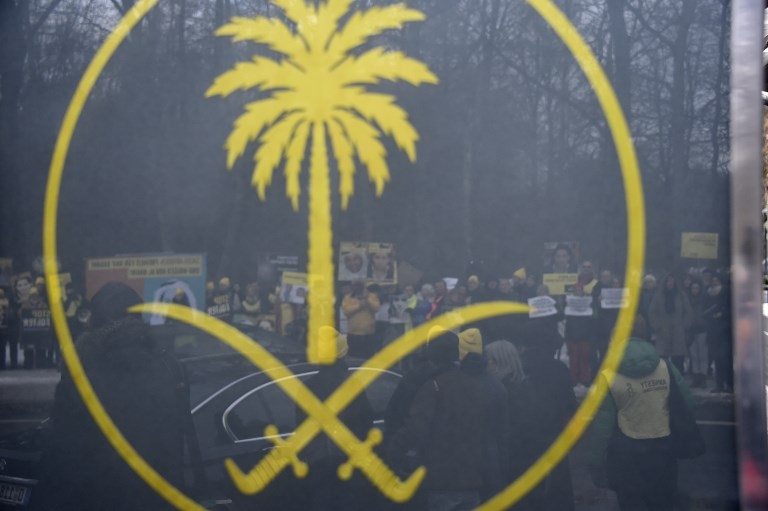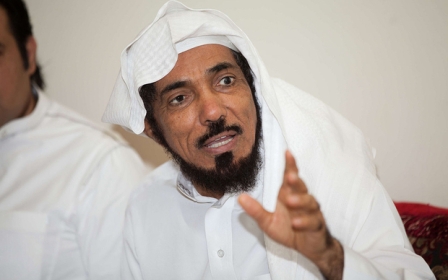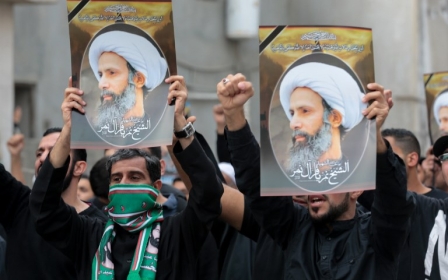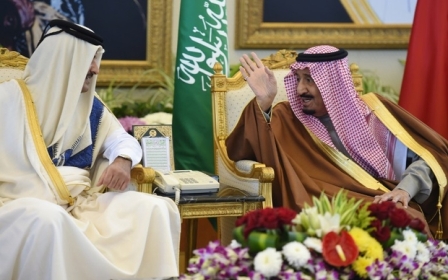Saudi Arabia sentences two human rights activists to a total of 21 years in prison

A Saudi court on Thursday issued harsh jail terms against two human rights defenders despite reforms touted by the kingdom's crown prince, according to Amnesty International.
The court in Riyadh sentenced Mohammad al-Otaibi and Abdullah al-Attawi to 14 and seven years' imprisonment, respectively, the rights group said.
"The harsh sentencing... confirms our fears that the new leadership of (Crown Prince) Mohammed bin Salman is determined to silence civil society and human rights defenders in the kingdom," said Samah Hadid, director of campaigns for the Middle East at Amnesty.
"The crackdown on members of the human rights community has continued unabated, with almost all the country’s most prominent human rights defenders now behind bars," she said.
Otaibi and Attawi were charged with participating in setting up an organisation and announcing it before securing an authorisation.
They were also accused of dividing national unity, spreading chaos and inciting public opinion by publishing statements harmful to the kingdom's image and its judicial and security agencies, Amnesty said.
It did not say how they pleaded. The sentences were handed down by a court in the capital Riyadh on Thursday.
Otaibi, 49, was arrested at Doha airport and deported from Qatar to Saudi Arabia in May after he tried to fly with his wife to Norway where he had been granted political asylum.
He co-founded the Union for Human Rights in Riyadh in 2013 and authorities ordered it shut after about one month, but he continued his work.
"If Crown Prince Mohammad bin Salman is truly intent on bringing reforms to Saudi Arabia, he must ensure the immediate and unconditional release of all prisoners of conscience, including human rights defenders, detained solely for peacefully exercising their human rights," Hadid said.
The Saudi government's communications office could not be reached for comment.
Crown Prince Mohammed has all but officially taken power in Saudi Arabia, a key Western ally, pushing a reform agenda aimed at weaning the country off oil wealth and introducing social changes.
However, New York-based Human Rights Watch said last week that more than a dozen prominent political activists convicted on "vague charges arising from their peaceful activities" were serving lengthy prison sentences.
Since the 2011 Arab Spring, Saudi authorities have stepped up efforts to curb dissent with tough new cybercrime laws, sentencing offenders to prison terms for online posts deemed insulting to the kingdom or threatening to public order.
An absolute monarchy, Saudi Arabia bans political parties and public forms of protest and has sentenced members of a civil rights organisation who campaigned for a constitutional monarchy to decades in prison.
New MEE newsletter: Jerusalem Dispatch
Sign up to get the latest insights and analysis on Israel-Palestine, alongside Turkey Unpacked and other MEE newsletters
Middle East Eye delivers independent and unrivalled coverage and analysis of the Middle East, North Africa and beyond. To learn more about republishing this content and the associated fees, please fill out this form. More about MEE can be found here.




